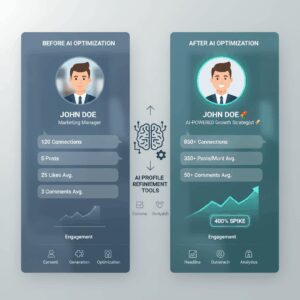
In today’s rapidly evolving job market, the shelf life of skills is shrinking. A degree may still open doors, but it no longer guarantees long-term career security. Employers increasingly value specific, up-to-date abilities that can be applied immediately. Enter micro-certifications—short, targeted credentials designed to help professionals upskill or reskill quickly.
These bite-sized learning programs are disrupting the traditional education model, offering workers a fast, affordable, and flexible way to stay competitive.
What Are Micro-Certifications?
Micro-certifications (sometimes called micro-credentials or digital badges) are short courses or programs focused on a single skill or competency. They often take weeks—not years—to complete and can be earned online or through professional organizations.
Examples include:
- A Google certificate in data analytics.
- A Salesforce badge in customer relationship management.
- A cybersecurity fundamentals course from CompTIA.
Unlike broad degrees, micro-certifications zero in on practical, job-ready skills that employers need now.
Why They’re Gaining Popularity
1. Speed and Flexibility
Unlike traditional degrees, which require years of commitment, most micro-certifications can be completed in weeks or months. They fit easily into busy schedules and can be pursued alongside full-time work.
2. Affordability
Micro-certifications are often a fraction of the cost of formal education. Some programs cost under $500, compared to tens of thousands for a college degree.
3. Industry Recognition
As major companies like Google, Microsoft, and IBM roll out their own certifications, employers increasingly see these credentials as proof of specialized skills.
4. Stackable Credentials
Many programs are designed to be “stacked” over time. For example, completing several badges in cloud computing can lead to an advanced certification, making career progression more modular and customizable.
Who Benefits the Most?
- Early-Career Professionals
Those just starting out can use micro-certifications to build a portfolio of marketable skills that go beyond general education. - Mid-Career Changers
For workers pivoting industries—say, from retail to tech—certifications in coding, data analysis, or digital marketing provide a fast entry point. - Experienced Workers
Even seasoned professionals need to keep up with evolving tools. Micro-certifications help them stay relevant without returning to school.
Limitations to Consider
While micro-certifications are powerful, they’re not a silver bullet.
- Not Always Equal to a Degree: Some employers still prioritize formal degrees, especially in traditional industries like law or finance.
- Quality Varies: Not all certifications are recognized or respected. It’s essential to choose programs backed by reputable organizations.
- Skill Depth: Micro-certifications provide breadth and immediate applicability but may not replace deep expertise gained through longer study.
Real-World Examples
- Tech: Cloud computing certifications from Amazon Web Services (AWS) are among the most sought-after in IT.
- Healthcare: Telehealth training programs are preparing professionals for virtual care models.
- Business: LinkedIn Learning and Coursera courses in project management help professionals climb into leadership roles.
These programs often make the difference between getting hired and being overlooked.
How to Choose the Right Certification
- Research Employer Demand: Browse job listings in your field. Which certifications are mentioned most often?
- Check Industry Reputation: Stick to programs from established companies, universities, or trade associations.
- Balance Cost and ROI: Ensure the skills you gain will justify the expense.
- Plan for Stacking: Look for certifications that can build toward more advanced credentials.
Micro-certifications are democratizing education, making professional development faster, cheaper, and more accessible than ever before. While they won’t replace degrees entirely, they’re a critical piece of the modern career puzzle—especially for workers navigating industries where technology and expectations evolve overnight.
In a world where adaptability is key, micro-certifications prove that learning doesn’t have to stop after graduation. With the right strategy, they can be the fastest way to sharpen your skills, pivot into new fields, and keep your career future-proof.
Unlock Full Article
Watch a quick video to get instant access.











